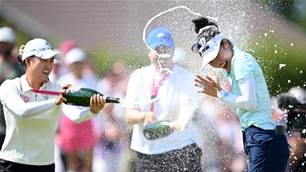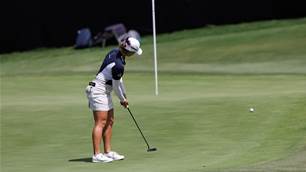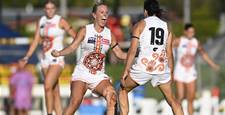Who would be the heroes of the next gen? | TWG
 Who would be the heroes of the next gen? | TWG
Who would be the heroes of the next gen? | TWGThe great passivist Mahatma Ghandi once said that "A nation's greatness is measured by how it treats its weakest members."
By the adage, the Australian football nation is looking like one in great trouble.
Like every other lover of the game, I have been watching the events of the last few weeks, and last year really, with dismay. But the latest news truly has me fearful for the future of the game.
It comes on the back of the news that some of the A-League owners are contemplating pulling their National Youth League and W-League sides. I'll leave it to those who know more than I to articulate the consequences of the former, but I argue that the ramifications of the latter are much greater to football as a whole.
Since its formation in 2008, the W-League has been the premier women's football competition in Australia and, without a shadow of doubt, its existence saved the existence of the Westfield Matildas.
Think back to that period of time. The women's national team had just experienced its greatest result; a quarter final appearance in the FIFA Women's World Cup. A game in which Australia pushed the mighty Brazilians to the edge of elimination. Despite the result, the squad was a tired and aged one. In the subsequent 12 months, legends of the Australian game were to retire including Cheryl Salisbury, Dianne Alagich and Joey Peters. Regeneration was badly needed but where would it come from?
Enter the W-League. While the standard in that first season was nothing to write home about, it did give the next generation an opportunity to play week in, week out and, most importantly, it provided an identification tool for Tom Sermanni.
The players that emerged from that season are now household names; a 16 year old Samantha Kerr, 17 year old Kyah Simon and Tameka Butt and 18 year old Elise Kellond-Knight and Ellyse Perry. Oh and a 14 Caitlin Foord who, while she was not playing in the W-League due to age restrictions, was training with the Sydney FC W-League team.
Admittedly these players are of such talent that they would probably have would have been identified anyway but I don't believe the rapidness of their development wouldn't have occurred. Why? Well because the best footballers, the likes of Lisa De Vanna, Kate Gill and Heather Garriock, would have been forced to remain overseas and thus stymying the development of those up and coming youngsters. How often do we lament this phenomenon in the men's game?
The result of the W-League is Australia's first football silverware; the 2010 AFC Women's Asian Cup. Don't delude yourself, we wouldn’t have that cherished piece of metal in the FFA trophy cabinet if not for the W-League.
Now before you accuse me of being blind to the financial realities of sport, I will say I do sympathise with the owners. No-one would like to lose $2 million* a year on an enterprise but, at the cost of an estimated $150,000, cutting the W-League team will not stem the bleeding. In fact, I believe it will cost clubs, and Australian football, much much more in the long run.
The much maligned Sepp Blatter once said something profound (yes he does that occasionally). He said "the future of football is female". It is. Female footballers have been the largest growing participation sport in Australia for years, mothers chose what sports their sons play (and usually transport them as well**), and female supporters are a growing fan base for clubs. Look how much the AFL is throwing at attracting female supporters and here we have a natural fit.
The loss of the W-League would affect all of that growth. The engagement of the next generation of supporters starts early and is cultivated through hero worship. But if there are no heroes, no role models, no league to aspire to, how do we hook them and make them life long lovers of the game? You can't ignore a large part of the population and expect it to have no effect.
This doesn't come down to if you watch, like or even respect the women's game. It is, regardless, a vital part of football and its loss would be a sad indictment on the state of Australian football.
* That's the figure being bandied about.
** Yes it’s a generalisation but the phrase "Soccer Mums" was coined for a reason!
Related Articles

Column: Back-to-Back and Better Than Ever

The Aussies at the U.S Women’s Open













